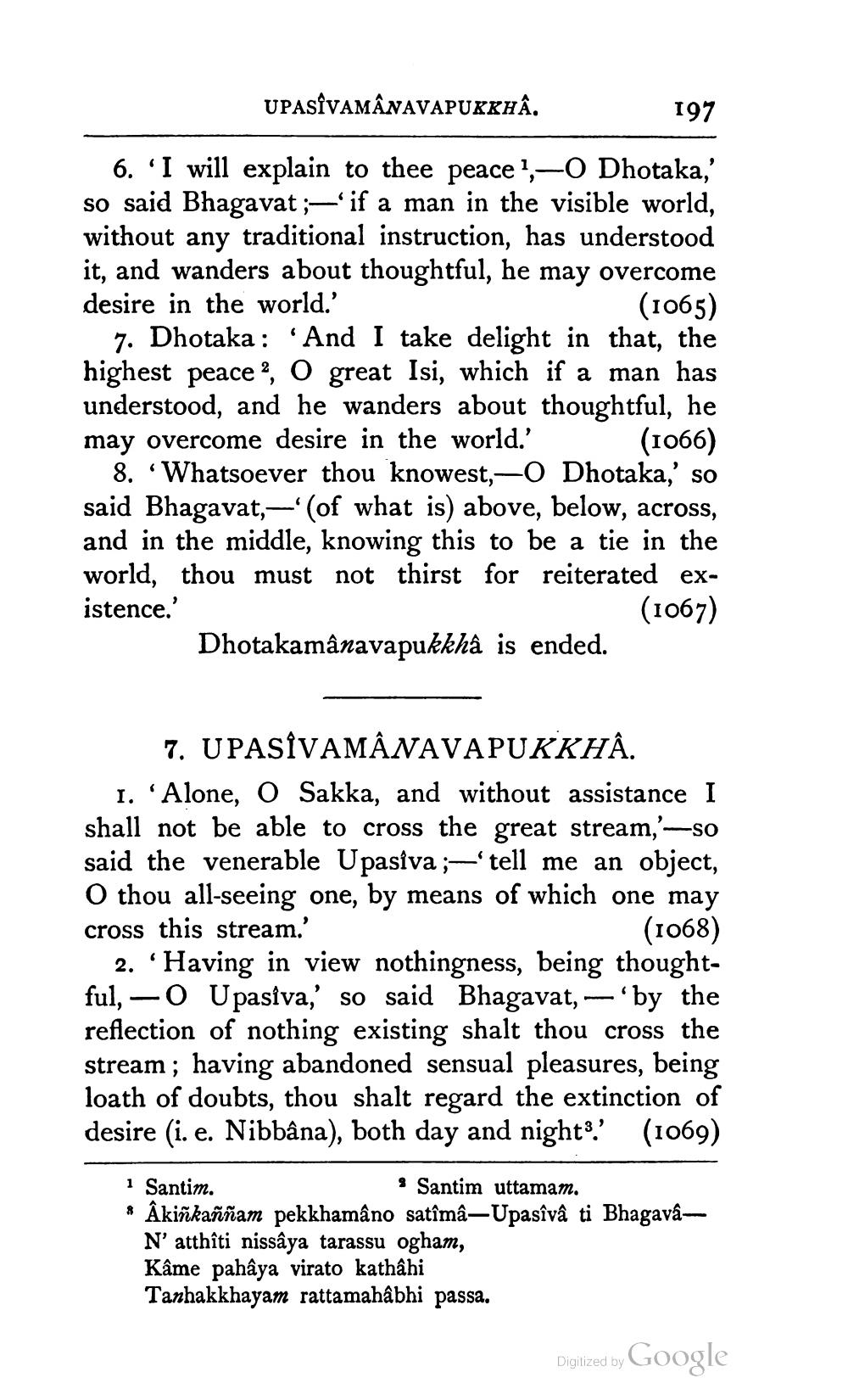________________
UPASIVAMÂNAVAPUKKHÂ.
197
6. 'I will explain to thee peace 1,-0 Dhotaka, so said Bhagavat ;-'if a man in the visible world, without any traditional instruction, has understood it, and wanders about thoughtful, he may overcome desire in the world.'
(1065) 7. Dhotaka : 'And I take delight in that, the highest peace?, O great Isi, which if a man has understood, and he wanders about thoughtful, he may overcome desire in the world.'
(1066) 8. Whatsoever thou knowest,-0 Dhotaka, so said Bhagavat, -(of what is) above, below, across, and in the middle, knowing this to be a tie in the world, thou must not thirst for reiterated existence.
(1067) Dhotakamânavapukkhâ is ended.
7. UPASIVAMÂNAVAPUKKHÂ. 1. ‘Alone, O Sakka, and without assistance I shall not be able to cross the great stream,'-s0 said the venerable Upasiva ;-'tell me an object, O thou all-seeing one, by means of which one may cross this stream.'
(1068) 2. “Having in view nothingness, being thoughtful, - O Upasiva,' so said Bhagavat, - 'by the reflection of nothing existing shalt thou cross the stream; having abandoned sensual pleasures, being loath of doubts, thou shalt regard the extinction of desire (i.e. Nibbâna), both day and nights.' (1069)
i Santim.
Santim uttamam. * Âkiñkaññam pekkhamâno satîmâ— Upasîvâ ti Bhagava
N'atthîti nissaya tarassu ogham, Kâme pahầya virato kathâhi Tanhakkhayam rattamahâbhi passa.
Digilized by Google




